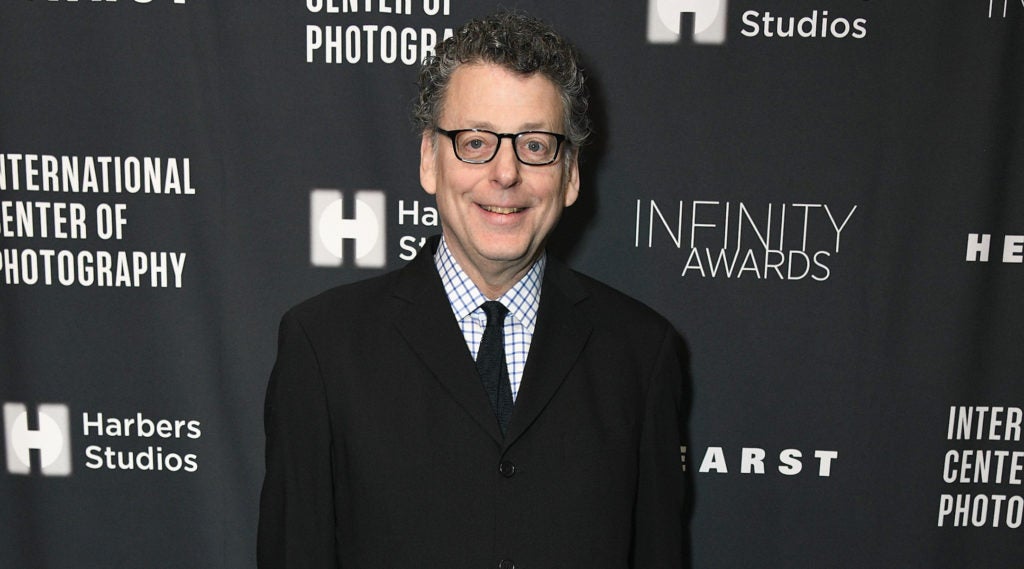Maurice Berger, 63, was a curator and historian who decried racism
Published April 1, 2020

(JTA) — Maurice Berger was a curator, writer and art historian who had worked extensively with the Jewish Museum in New York City. He died of complications from the coronavirus on March 23 at age 63.
“For more than 25 years, Berger was a valued colleague and friend of the Museum who passionately demonstrated the highest standards of scholarship and intellectual integrity,” the Jewish Museum said in a statement. “His work on race relations, American and Jewish culture, and his belief in making exhibitions and the written word meaningful and accessible for everyone, inspired, challenged, and encouraged so many in the curatorial profession — and beyond.”
That was absolutely true for Rebecca Pristoop, a curator living in Brooklyn, who shared that she first met Berger in 2012 at the Jewish Museum, where she was working at the time. Having admired Berger’s work for a decade, Pristoop was starstruck — but finally mustered the courage to introduce herself.
“Thank God I did,” she wrote in a moving Facebook remembrance on March 24, the day that Berger’s death was announced. “That introduction led to eight years of working together.”
Pristoop wrote:
“Most precious were the moments of honest conversation. Sitting on a bench at MoMA, Maurice asked me how or if I wanted to keep pursuing art history, he asked about my personal life and assured me that he didn’t find his partner until later… He would question my choices in my pursuit of, or retreat from, a career and straight talk me that if I kept moving further away from critical discourse it would be hard to get back in (he’s not wrong and I’m still all over the place). Then there were the phone calls where he was always willing to offer advice, or talk about yoga, or support me in any way he could. And I know this is true for so many people.”
Berger grew up poor and Orthodox Jewish on New York City’s Lower East Side, and he lived in a housing project where many of his neighbors were black and Latino. He explored that dynamic — which included a stint at a Jewish day school where he said he was tormented for being poor — in a 1999 memoir, “White Lies,” that was widely acclaimed for the way it challenged white racism in America.
Anti-racism formed a backbone for much of Berger’s work, including multiple exhibitions and books. In an essay introducing a 2017 collection of photographs depicting the complex and sometimes violent history of race in America that Berger curated for the New York Times, he explained his commitment to using his work to combat racism.
“As a Jew, I have known anti-Semitism. As a gay man, I have known homophobia,” he wrote. “But neither has seemed as relentless as the racism I witnessed growing up — a steady drumbeat of slights, thinly-veiled hostility and condescension perpetrated by even the most liberal and well-meaning people. It was painful to watch, and as my friends let me know, considerably more painful to endure.”
Berger is survived by his husband, the curator Martin Heiferman.















